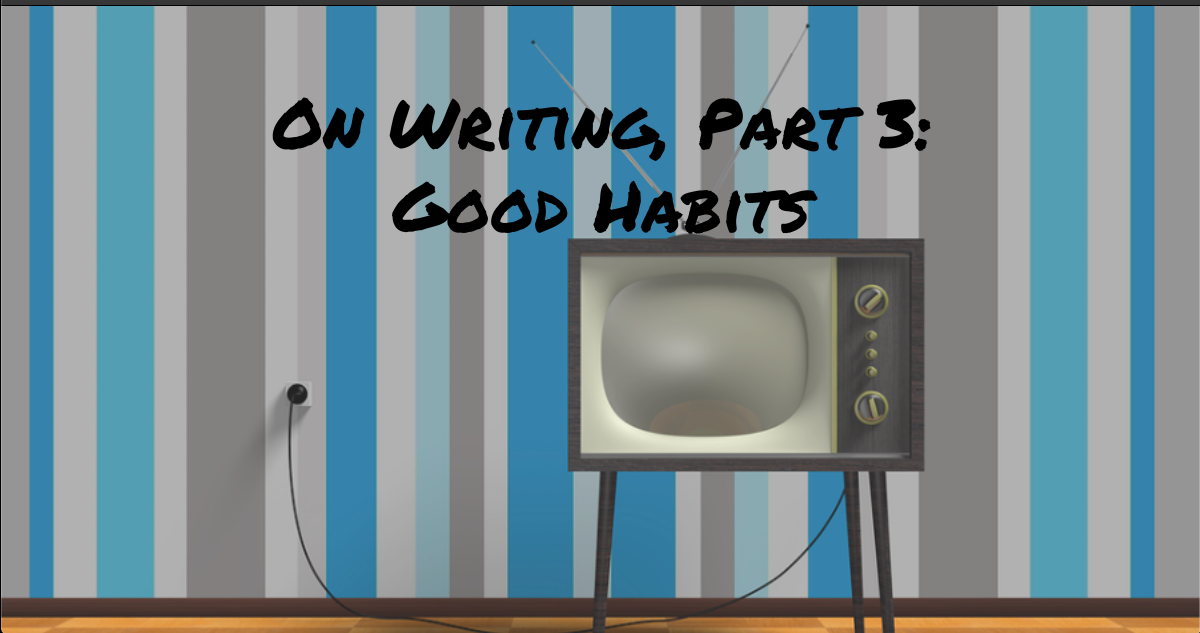Because everyone loves a good story
On Writing, Part 3: Good Habits

Good habits.
The Hermione Grangers out there just got excited at the prospect of more good habits, and the Ron Weasleys just slouched in their seats and heaved an exasperated sigh. No matter which of these reactions you tend toward, there’s something for you to try in this post. Read on to see some of King’s most beneficial habits.
TWO FUNDAMENTAL TRUTHS
Master the Basics
King spends the first half of his book, On Writing: A Memoir of the Craft, relating his own history and describing the contents of a writer’s toolbox. Now as he approaches the “heart of [the] book,” he wants to make two things perfectly clear. The first fundamental truth, he says, is that “good writing consists of mastering the fundamentals (vocabulary, grammar, the elements of style) and then filling the third level of your toolbox with the right instruments” (142).
What kinds of instruments? You know, techniques to makes your writing more interesting—things like narration, description, and dialogue. There are more, of course (because not all writing is fiction), but these are three biggies. We’ll look at King’s explanation of these instruments in later weeks, so hang in there.
There Is Hope

King’s second fundamental truth is that “it is possible, with lots of hard work, dedication, and timely help, to make a good writer out of a merely competent one” (142). Notice that he doesn’t say bad writers can be good or that good writers can be great. He’s not guaranteeing miracles here. But many, many published writers are in the category of competent-writers-turned-good. In fact, I think plenty have hovered on the cusp of “competent” without ever breaking through to “good” at all. So why can’t you be among the published? In King’s opinion, you (probably) can.
But notice the caveats: it takes “lots of hard work, dedication, and timely help.” Do you have what it takes? Put your hand down, Hermione. It was rhetorical. Sit up, Ron. You’ll do fine. Let’s look at King’s suggestions to see if we can implement a few for the good of our writing.
GOOD HABITS
Read a Lot
“If you want to be a writer,” King says, “you must do two things above all others: read a lot and write a lot. There’s no way around these two things that I’m aware of, no shortcut” (145). If you’re interested in this blog, my guess is that you already enjoy reading. But that doesn’t necessarily mean you read a lot. I used to. When I was a naughty youngster, I’d even get grounded from reading since it was my greatest joy. (Yes, I was Hermione.) But now I don’t read nearly as much as I should.
My usual excuses are that I don’t have time and that I don’t feel like it. But King doesn’t pull any punches. “Can I be blunt on this subject? If you don’t have time to read, you don’t have the time (or the tools) to write. Simple as that” (147). Well, there you go. Even when I’m busy, I can still listen to audiobooks instead of the radio, read a book instead of surfing my phone, and squeeze in a chapter before bed instead of watching a Seinfeld rerun. Even a little time can add up.

Speaking of which, King is vehement about the detrimental effects of TV and movies. It rots our brains, wastes our time, and blunts our creativity. But here’s King’s guarantee: “Once weaned from the ephemeral craving for TV, most people will find they enjoy the time they spend reading. I’d like to suggest that turning off that endlessly quacking box is apt to improve the quality of your life as well as the quality of your writing” (148). Ouch! But I completely agree.
Write a Lot
Write daily, and write plenty, says Stephen. The more you put it off, the more it will begin to feel like work, and that’s no fun. You don’t need a fancy office, either. Pick a quiet, inauspicious room with a closed door where you won’t be interrupted, even by your phone or computer. Just sit there and write.
Don’t waste time waiting for the muse—just get cracking. Write what you know if it’s interesting. Write what you imagine if you prefer. Basically, write about “anything at all…as long as you tell the truth” (158). Just keep writing.
CONCLUSION
Well, if you were looking for good habits to incorporate, King gave you plenty to choose from. Don’t get overwhelmed or discouraged, though. Let’s pick one and try it out for a week. Not sure where to start? Try trading one show for a few chapters of a good book. Grab some snacks, and get comfy. Who knows? It might just become a habit.

So discipline really is clutch here, huh…alright alright. Thank you for reminding and encouraging!
As much as I hate to admit it, it sure seems that way. Bear in mind that I’m writing this while eating a bowl of sugary cereal before bed, though… I guess we just have to choose our battles.